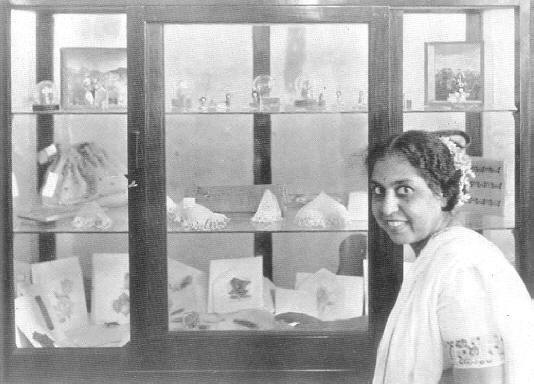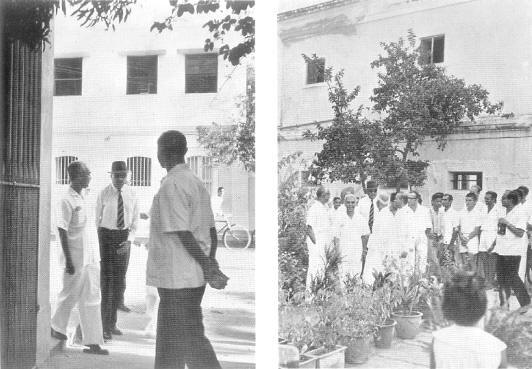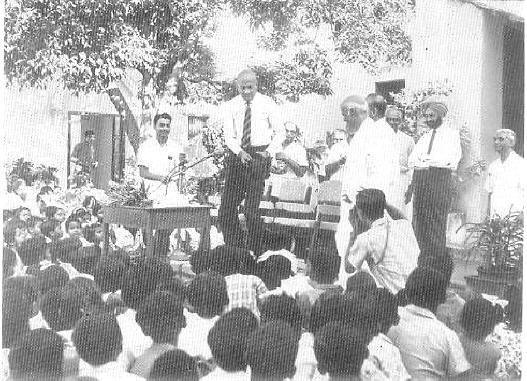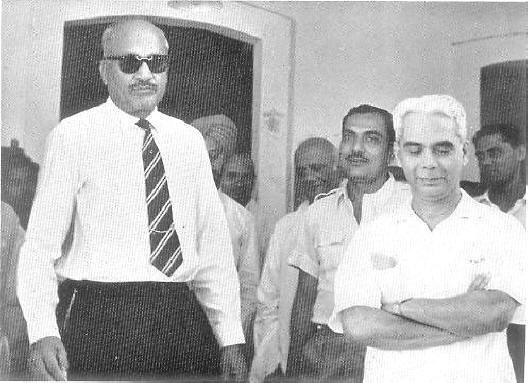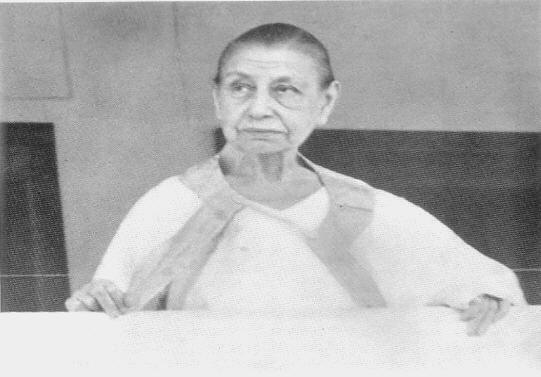disparaissait, il faudrait naturellement tout recommencer. Et alors, pour un enfant qui vient de naître, combien d'années de lente et insipide éducation faut-il pour que son cerveau soit prêt à exprimer, même une simple idée générale, pour que ses mouvements soient conscients au lieu d'être absolument inconscients, combien d'années faut-il ? Pour une civilisation, combien d'années faudra-t-il pour simplement ramener tout ce que l'on a perdu ? Il y a eu beaucoup de civilisations sur la terre, il y a des savants qui essayent de retrouver ce qui a été, mais personne ne peut dire avec certitude exactement ce qu'il y avait — la majeure partie de ces .civilisations est complètement perdue. Je parle de civilisations antérieures à celle qui, pour nous, est historique. Eh bien, s'il faut encore des milliers d'années pour en recommencer une autre, évidemment... En tout cas, pour notre conscience humaine extérieure, c'est une perte de temps. Mais on nous dit que l'Œuvre à faire, la Réalisation promise, va avoir lieu maintenant. Elle va avoir lieu maintenant, parce que le cadre de cette civilisation paraît favorable comme un terre-plein ou comme une base pour s'élever au-dessus. Mais si cette civilisation est détruite, sur quoi va-t-on construire ? Il faut d'abord faire le terre-plein pour pouvoir construire. S'il faut encore cinq mille ou dix mille ans pour faire ce terre-plein, cela prouve que ce n'est pas maintenant que les choses se feront — elles se feront, c'est bien entendu, elles se feront, mais... Combien de vies avez-vous tous eues ? Qu'est-ce que vous vous rappelez de vos vies ? A quoi servent tous les efforts que vous avez faits dans les vies antérieures pour vous perfectionner, pour arriver à vous comprendre, à vous maîtriser un petit peu, à vous servir simplement de l'instrument qui vous a été donné ? Qu'est-ce qu'il vous reste de tout cela ? Voulez-vous me le dire? Qui peut me dire ici qu'il profite consciemment des expériences de ses vies passées — inconsciemment il y a quelque chose qui reste, mais pas grand-chose — mais consciemment ?... Personne ne répond ?
Non, justement, on a l'impression qu'après avoir vécu tant d'années, on commence seulement à savoir un tout petit peu.
Oui, parfaitement, c'est justement comme cela. C'est parce que, plus on va, plus on s'aperçoit que l'on a tout à comprendre et tout à apprendre.
Suite de la page 52 .
Et par conséquent, si l'on a derrière soi une soixantaine d'années, ce n'est rien. On voudrait avoir devant soi des centaines et des centaines d'années pour pouvoir faire le travail. C'est comme cela, vous êtes tous des petits enfants, n'est-ce pas, alors les années vous paraissent longues, parce que vous n'en avez pas eu beaucoup, mais vous verrez, plus on avance, plus on s'aperçoit qu'il y a beaucoup de chemin qui reste en avant, beaucoup, beaucoup, et l'on ne voudrait pas avoir tout à recommencer, parce que c'est autant de temps de perdu.
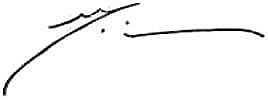
________________
Cont. from page 51
tell me here that he is consciously profiting by the experiences of his past lives—unconsciously there remains something, not very much—but consciously ?...Nobody answers ?
No, precisely, one has the impression that after having lived so many years, one has only begun to know just a little".
Yes, perfectly so, it is just like that. It is because the further one goes, the more one perceives that one has yet everything to understand, everything to learn. And therefore if you have behind you some sixty years, it is nothing. One would like to have in front hundreds and hundreds of years to be able to do the work. It is like that, you are all little children aren't you ? So the years appear long to you, because you have not had many of them. But you will see, the more you advance, the more you perceive that much of the way remains ahead, very much, very much and you would not like to begin all over again, for it would be so much time lost.
THE MOTHER
